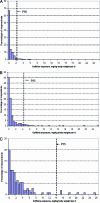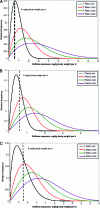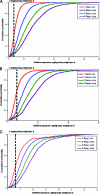Health effects of energy drinks on children, adolescents, and young adults
- PMID: 21321035
- PMCID: PMC3065144
- DOI: 10.1542/peds.2009-3592
Health effects of energy drinks on children, adolescents, and young adults
Erratum in
-
Seifert et al. Health Effects of Energy Drinks on Children, Adolescents, and Young Adults. Pediatrics. 2011;127(3):511-528.Pediatrics. 2016 May;137(5):e20160454. doi: 10.1542/peds.2016-0454. Pediatrics. 2016. PMID: 27244833 Free PMC article. No abstract available.
Abstract
Objective: To review the effects, adverse consequences, and extent of energy drink consumption among children, adolescents, and young adults.
Methods: We searched PubMed and Google using "energy drink," "sports drink," "guarana," "caffeine," "taurine," "ADHD," "diabetes," "children," "adolescents," "insulin," "eating disorders," and "poison control center" to identify articles related to energy drinks. Manufacturer Web sites were reviewed for product information.
Results: According to self-report surveys, energy drinks are consumed by 30% to 50% of adolescents and young adults. Frequently containing high and unregulated amounts of caffeine, these drinks have been reported in association with serious adverse effects, especially in children, adolescents, and young adults with seizures, diabetes, cardiac abnormalities, or mood and behavioral disorders or those who take certain medications. Of the 5448 US caffeine overdoses reported in 2007, 46% occurred in those younger than 19 years. Several countries and states have debated or restricted energy drink sales and advertising.
Conclusions: Energy drinks have no therapeutic benefit, and many ingredients are understudied and not regulated. The known and unknown pharmacology of agents included in such drinks, combined with reports of toxicity, raises concern for potentially serious adverse effects in association with energy drink use. In the short-term, pediatricians need to be aware of the possible effects of energy drinks in vulnerable populations and screen for consumption to educate families. Long-term research should aim to understand the effects in at-risk populations. Toxicity surveillance should be improved, and regulations of energy drink sales and consumption should be based on appropriate research.
Figures



References
-
- Lee J. Energy drinks vs. sports drinks: know thy difference. Available at: http://speedendurance.com/2009/07/09/energy-drinks-vs-sports-drinks-know... Accessed January 17, 2011
-
- McCarthy M. Overuse of energy drinks worries health pros. Available at: www.usatoday.com/sports/2009-07-01-Drinks_N.htm Accessed January 17, 2011
-
- US Food and Drug Administration Overview of dietary supplements. Available at: www.fda.gov/Food/DietarySupplements/ConsumerInformation/ucm110417.htm Accessed January 17, 2011
-
- Nitzke S, Tanumihardjo S, Salomon J, Coleman G. Energy drinks, sports drinks, and other functional/enhanced beverages are often a waste of money. Available at: www.uwex.edu/ces/wnep/specialist/nfl/mmpdfs/0810.pdf#page=1 Accessed January 17, 2011
-
- Oddy WH, O'Sullivan TA. Energy drinks for children and adolescents, erring on the side of caution may reduce long term health risks. BMJ. 2009;339:b5268. - PubMed
Publication types
MeSH terms
Substances
Grants and funding
- U01 HD052104/HD/NICHD NIH HHS/United States
- HL078522/HL/NHLBI NIH HHS/United States
- HL095127/HL/NHLBI NIH HHS/United States
- R01 HL087000/HL/NHLBI NIH HHS/United States
- HL094100/HL/NHLBI NIH HHS/United States
- F31 HL094100/HL/NHLBI NIH HHS/United States
- HD052102/HD/NICHD NIH HHS/United States
- HL053392/HL/NHLBI NIH HHS/United States
- HL087000/HL/NHLBI NIH HHS/United States
- R01 CA127642/CA/NCI NIH HHS/United States
- HL079233/HL/NHLBI NIH HHS/United States
- HL007188/HL/NHLBI NIH HHS/United States
- K30 HL004537/HL/NHLBI NIH HHS/United States
- T32 HL007188/HL/NHLBI NIH HHS/United States
- HD80002/HD/NICHD NIH HHS/United States
- HL087708/HL/NHLBI NIH HHS/United States
- CA068484/CA/NCI NIH HHS/United States
- R01 HL095127/HL/NHLBI NIH HHS/United States
- HCOF-C76HF15614/PHS HHS/United States
- R01 HL078522/HL/NHLBI NIH HHS/United States
- AI50274/AI/NIAID NIH HHS/United States
- U01 HD052102/HD/NICHD NIH HHS/United States
- R13 HL087708/HL/NHLBI NIH HHS/United States
- U01 AI050274/AI/NIAID NIH HHS/United States
- HD052104/HD/NICHD NIH HHS/United States
- CA127642/CA/NCI NIH HHS/United States
- P01 CA068484/CA/NCI NIH HHS/United States
- HL072705/HL/NHLBI NIH HHS/United States
- R01 HL053392/HL/NHLBI NIH HHS/United States
- HL004537/HL/NHLBI NIH HHS/United States
- R01 HL072705/HL/NHLBI NIH HHS/United States
LinkOut - more resources
Full Text Sources
Other Literature Sources
Medical

